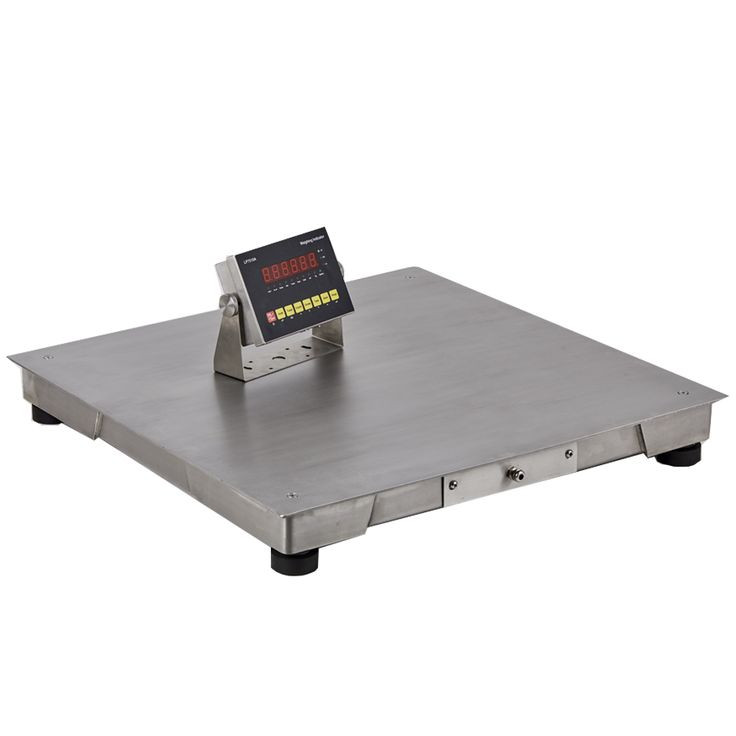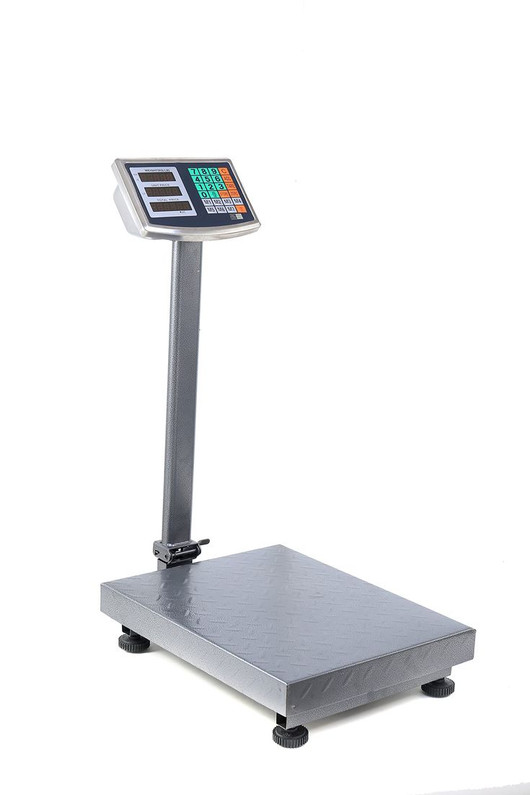Factors Affecting Your Weigh Scale Accuracy
Have you ever stepped on your scale and seen a number that just doesn’t seem right? So, you step off, try again—and now it shows something else. It’s not only confusing, but it’s super annoying, too. Whether you're checking your weight, weighing a box to ship, or using a scale at work, the number must be correct.
When your scale gives wrong numbers, it can mess with your goals, slow down your work, or even cost you money. Maybe you’re trying to lose weight, run a business, or manage heavy items in a warehouse. No matter what you're doing, the scale needs to be accurate so you can rely on it.
If you're using a weight scale digital, digital weight machine, or any kind of scales for weighing, there are a few things that can mess with how it works. But don’t worry—once you know what to look for, most problems are easy to fix.
Let’s talk about what causes your scale to give wrong numbers and how you can make it work better.
Final Takeaways
- Where and how you use your scale affects how accurate it is.
- Calibration and proper setup make a big difference in reading consistency.
- Load cell damage, old batteries, or even vibrations can throw off results.
- Regular cleaning, flat placement, and routine checks keep your scale working better, longer.
Why Accuracy Matters
Weighing things might seem easy, but if your scale isn’t showing the right number, it can cause a lot of problems. For example, in shipping or logistics, the wrong weight can lead to extra costs.
In fitness, a bad reading can mess up your progress and make you feel discouraged. In shops or businesses, wrong weights can upset customers or even lead to trouble with the law.
It doesn’t matter if you're using a big heavy weight scale or a small bathroom scale—what matters is being able to trust the number you see. Companies like Prime Scales make great tools for both home and work, but even the best scales need to be used correctly to stay accurate.
Reasons Your Scale Gives Incorrect Readings
Below are some of the common reasons that can affect the accuracy of your weighing scale and cause it to give incorrect readings.
1. Environment Affects Accuracy
Believe it or not, where you place your scale can change the number it shows. Even small things around it can make a big difference.
Here’s what can affect your scale:
- If the room is too hot or too cold
- If there’s moisture in the air (humidity)
- If air is blowing from a fan, heater, or open window
- If there’s dust or dirt under the scale
All of these things can cause your scale to give the wrong number. This is one of the most common environmental effects on scale accuracy.
Pro Tip
Use your scale in a clean, dry place. Try to keep it away from windows, vents, or heaters where air can blow on it or where the temperature keeps changing.
2. Calibration Is Key
Even the most expensive scale will drift over time. That’s why calibration is a must. Many people don’t know how to calibrate a weighing scale, or they skip it. That’s when problems start. If the scale isn’t zeroed out or adjusted with a known weight, it won’t show you the correct number.
Some common mistakes:
- Not calibrating regularly
- Using random items instead of proper calibration weights
- Calibrating on an uneven surface
These are big weighing scale accuracy factors you shouldn’t ignore.
Pro Tip
Always use certified weights and calibrate on a flat, solid surface. If your scale allows, use its built-in calibration setting once a month or after moving it.
3. Load Cell Problems
A load cell is a small part inside your scale that feels the weight and turns it into a number. If it gets damaged, wet, or worn out, your readings won’t be right—no matter how much you calibrate.
Common issues that affect load cell accuracy in weighing systems:
- Dropping heavy items on the scale
- Overloading it past the limit
- Bending or twisting the platform
- Water or dust getting inside
Pro Tip
Treat your scale gently. Never throw or drop things on it, and don’t let it sit in humid or dirty places. If your readings jump around, the load cell might need to be checked.
4. Vibrations Interfere
If your scale sits on a shaky floor or near machines, vibrations can throw off the reading. You might not feel the movement, but the scale does. The impact of vibration on weighing accuracy is especially important in industrial settings or places with machinery nearby.
Pro Tip
Put your scale on a thick, stable surface. Avoid using it on soft floors or near noisy equipment. Anti-vibration mats can help.
5. User Mistakes Happen
Yes, you can accidentally mess up your scale reading without even realizing it.
Here’s how:
- Standing with your weight uneven
- Moving while the scale is reading
- Weighing at different times or after meals
- Holding things (like your phone or clothes)
These small actions can cause inaccurate weight measurements and make your progress hard to track.
Pro Tip
Step onto the scale slowly, stand still, and always weigh yourself at the same time each day—preferably in the morning before eating.
6. Battery and Power Issues
Low batteries or power fluctuations can lead to incorrect readings, display errors, or the scale shutting down. This is especially common in digital scales for sale that use low-quality batteries or are used for long periods without a power reset.
Pro Tip
Change your batteries often, even if the screen looks fine. If it’s a plug-in model, use a stable power source with a surge protector.
7. Scales Wear Out
Like anything else, scales don’t last forever. Over time, parts wear out, sensors get tired, and even the buttons stop working properly.
Signs your scale is aging:
- Delayed readings
- Numbers that keep changing
- Can’t zero out anymore
Even heavy duty weight scale units with regular use need replacing after several years.
Pro Tip
If your scale is older than five years and no longer accurate—despite recalibrating—it might be time to get a new one.
8. Skipping Maintenance
A lot of people forget that scales need care, too. Dust, crumbs, spills, and other debris can get under or inside the unit and mess with the electronics or sensors.
Simple weighing scale maintenance tips:
- Wipe it down after each use
- Keep it away from moisture or steam
- Don’t store heavy items on top of it
- Clean under the feet or platform often
Pro Tip
A quick weekly clean can go a long way. Don’t let dirt or moisture sit for long periods.
9. Software Glitches Happen Too
For smart scales with apps or Bluetooth, software bugs can lead to weird readings. Sometimes, the scale shows old data, doesn’t sync correctly, or just crashes. That’s when troubleshooting digital scale inaccuracies becomes important.
Pro Tip
Restart the scale, reset the app, or look for software updates from the maker. If problems continue, contact support.
What to Do When Readings Are Off
If your scale is showing strange numbers, try this:
- Turn it off and restart it
- Recalibrate using the correct weights
- Check if the surface is flat
- Replace the batteries
- Inspect for dust or damage
- Try it in a new location
- Contact the manufacturer
Sometimes, a simple reset fixes the issue. Other times, it's time to replace it.
Choosing the Right Scale
There’s a difference between a kitchen scale and one used in a factory. If you're weighing large items or equipment, you will need a large scale for weight or a certified heavy duty weight scale. However, a reliable digital weight machine will track daily health.
If you want something that lasts, check out Prime Scales. They offer well-built models for home, business, and everything in between—with great reviews and accuracy you can trust.
Frequently Asked Questions (FAQs)
1: What is the common defect of a weighing scale?
The most common problem with weigh scales is when the numbers keep changing or don’t stay steady. This usually happens because the scale hasn’t been calibrated, the battery is low, the surface is uneven, or a part inside the scale is damaged.
2: How to calculate the accuracy of a weighing balance?
To check if your scale is accurate, place a weight that you already know (like a 1kg test weight) on it. If the number on the scale is different, you can figure out how far off it is by using this formula:
(Actual weight - Weight shown on scale) ÷ Actual weight × 100.
This gives you the error in percentage.
3: What is the most accurate scale to weigh yourself?
Digital scales with smart sensors are usually the most accurate for personal use. Look for a scale that resets to zero on its own, has strong sensors, and shows the same number when you weigh more than once.
4: Can Wi-Fi or electronics affect a scale?
Sometimes, nearby devices like Wi-Fi routers or Bluetooth gadgets can interfere with a digital scale and make it act strange. It doesn’t happen often, but it’s best to keep your scale away from other electronics, just in case.
5: When should you replace a weighing scale?
If your scale is over five years old, gives random numbers, or can’t be fixed by recalibrating, it might be time to get a new one. Most scales don’t last forever and get less accurate with regular use.
Ready to Get a Reliable Scale?
If you're tired of guessing or dealing with numbers that never feel right, it’s time for a better solution. Prime Scales has digital scales for every need—from personal use to professional industries. Explore their lineup today and choose a scale that gives you results you can actually trust.
Recent Posts
-
Everything You Must Know to Ensure Industrial Scale Compliance and Avoid Costly Fines
Did you know one bad scale reading can get you fined? It's true. Many businesses mess up their scale …3rd Feb 2026 -
Maintenance Playbook for Industrial Scales: Preventive, Predictive, and Corrective Maintenance
Are your industrial scales costing you money? One hour of downtime can stop your entire production l …3rd Feb 2026 -
Stop Losing Thousands: The Certified 7-Step Industrial Scale Calibration Checklist for Flawless Accuracy
You check your inventory reports, and the numbers don't add up. Again. Those discrepancies often tra …2nd Jan 2026


